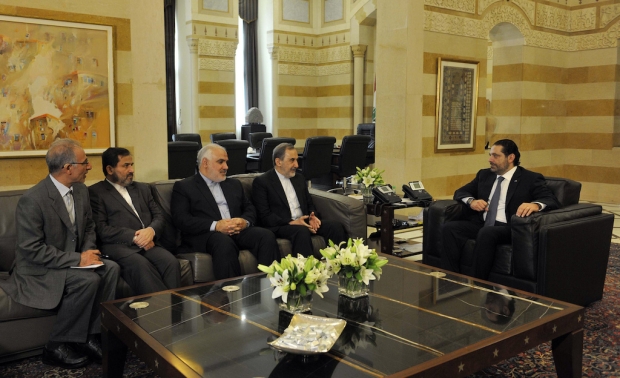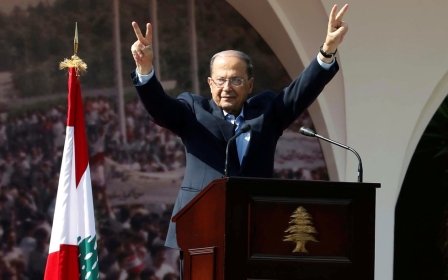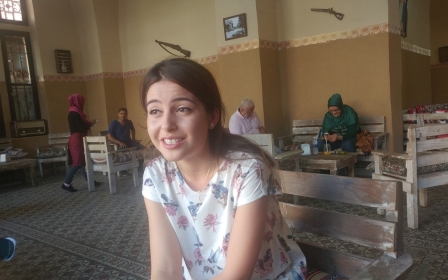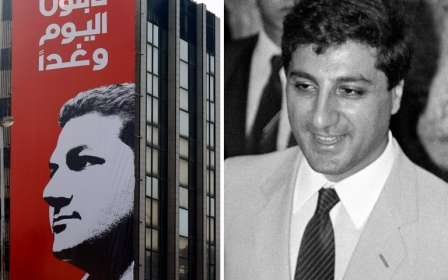Lebanon PM Saad Hariri announces surprise resignation over assassination fears
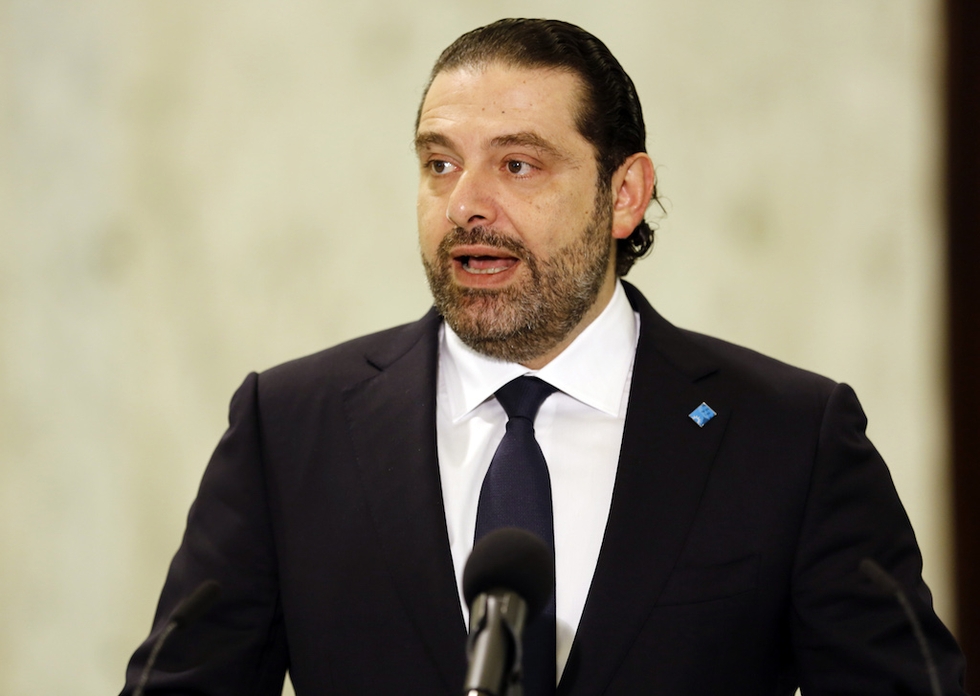
Lebanon's prime minister Saad Hariri has announced his resignation, saying that he sensed a "plot to target his life".
In a statement broadcast from Saudi Arabia on Al-Arabiya, the prime minister said that the climate in Lebanon resembles that before the assassination of his father.
He also criticised Iran and Hezbollah's "grip" on the country.
"We are living in a climate similar to the atmosphere that prevailed before the assassination of martyr Rafik al-Hariri," he said.
"I have sensed what is being plotted covertly to target my life."
In his statement, Hariri said Iran was "losing in its interference in the affairs of the Arab world," adding that Lebanon would "rise as it had done in the past" and "cut off the hands that wickedly extend into it".
Hariri became Lebanon's prime minister late last year after a political deal that also brought Hezbollah ally Michel Aoun to office as the country's president.
Hezbollah is politically dominant in Lebanon, but its ties to Iran and its support for Syrian President Bashar al-Assad have angered some Lebanese.
Hariri has visited Saudi Arabia, where he has strong political and business ties, twice in the past week, meeting Crown Prince Mohammed bin Salman and other senior officials.
Beirut-based al-Jadeed television reported Hariri's resignation statement was made and broadcast from the Saudi capital Riyadh.
Aoun's office said Hariri had called him from "outside Lebanon" to inform him of his resignation.
Iran-Saudi tussle
Hariri flew to Saudi Arabia on Friday after a meeting in Beirut with Ali Akbar Velayati, the top adviser to Iranian Supreme Leader Ayatollah Ali Khamenei. Afterwards, Velayati described Hariri's coalition as "a victory" and "great success".
Emile Hokayem, an analyst on Middle East affairs at the International Institute for Strategic Studies, tweeted that the resignation represented a failure to contain Hezbollah's influence in Lebanon.
"Hariri’s experiment to ally with Aoun to constrain Hezbollah unsurprisingly coming to an end. Lebanon moving toward the unknown," he tweeted.
"Hariri was getting weaker domestically, due to poor performance. Saudi was unhappy with his domestic arrangements. No real external support."
Former prime minister Rafiq Hariri was killed by a massive blast in 2005 that left a total of 23 dead, including MP Bassel Fleyhane, and wounded 220 others.
The Syrian government, accused of being behind the blast, was forced to withdraw its troops from Lebanon, ending a 30-year presence.
Walid Jumblatt, the leader of Lebanon's Druze minority, who has frequently played kingmaker in Lebanese politics, said he feared the consequences of Hariri's resignation.
"We cannot afford to fight the Iranians from Lebanon," he said, advocating an approach of compromise with Hezbollah in Lebanon while waiting for regional circumstances to allow Saudi-Iranian dialogue.
Iranian officials denounced the resignation, saying it would create unrest, while Saudi officials appeared to crow over it.
"The resigning Lebanese prime minister's repetition of the unrealistic and unfounded accusations of the Zionists, Saudis and Americans against Iran is an indication that this resignation is a new scenario for creating tension in Lebanon and the region," Iranian foreign ministry spokesman Bahram Qassemi said in a statement published on the ministry website.
"But we believe that the resistant people of Lebanon will pass this stage easily."
And Hussein Sheikh al-Islam, adviser to Iran's supreme leader, said: "Hariri's resignation was done with planning by Donald Trump, the president of America, and Mohammed bin Salman, the crown prince of Saudi Arabia, to destabilise the situation in Lebanon and the region."
Saudi Arabia's influential Gulf Affairs Minister Thamer al-Sabhan, who met Hariri in Riyadh this week, echoed the language of the Lebanese politician saying in a tweet: "The hands of treachery and aggression must be cut off."
Saudi Arabia and Iran are locked in a regional power tussle, backing opposing forces in wars and political struggles in Lebanon, Syria, Yemen, Bahrain and Iraq.
Middle East Eye propose une couverture et une analyse indépendantes et incomparables du Moyen-Orient, de l’Afrique du Nord et d’autres régions du monde. Pour en savoir plus sur la reprise de ce contenu et les frais qui s’appliquent, veuillez remplir ce formulaire [en anglais]. Pour en savoir plus sur MEE, cliquez ici [en anglais].


